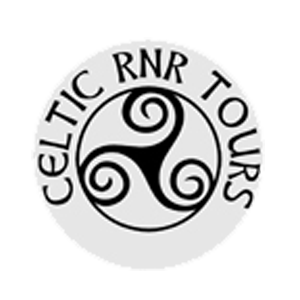
Side Area Customizing Widgets
Latest News

Side Area Customizing Widgets
Everyone on this trip needs a valid passport – you can’t board your Europe-bound flight let alone enter Ireland without one. Additionally, an increasing number of European passport officials now check to see if passports have more than 6 months validity remaining as one exits their countries on departure. Some airlines deny boarding if this requirement is not met. If your passport’s expiration date falls within six months of the date you are returning from Europe, renew it now. To be safe, I suggest renewing your passport if it is set to expire between now and the end of the year. If you don’t yet have a passport, need to renew, or yours requires additional pages, apply now without delay. Renewal instructions can be found at: http://travel.state.gov/content/passports/english/passports/renew.html
Place a photocopy of your passport’s picture page in each piece of hand carried and checked luggage to help verify your identity in case your passport is lost or stolen. This also helps should your baggage become misrouted. Make a list of all your credit card and ATM card numbers as well as the phone numbers to call in case they’re lost and stolen. Keep this list in a safe place separate from your wallet.
This is a highly recommended item. Registering the trip at the State Dept’s Smart traveler web site https://step.state.gov/step facilitates assistance in case of lost or stolen passports, medical emergencies, falling victim to crime or otherwise requiring the services of a U.S. consular officer abroad.
Call the customer service numbers on each of your credit cards to provide them a list of countries you’ll be visiting and the dates you’ll be in each. This will alert them that any charges from those countries are legitimate and prevent your card from being placed on an automatic security block should overseas charges appear. Confirm the number to call should your card be lost or stolen and determine how to obtain a replacement card while overseas.
In addition to providing cell and hotel phone numbers, the Dept of State recommends leaving a copy of your air itinerary and photocopies of your passport picture page, driver’s license and the credit cards you take.
U.S. driver’s licenses are valid in Ireland for temporary stays of up to a year. Some insurance and car rental companies also require an International Driving Permit, obtainable at any American Automobile Association office. Most rental cars in Ireland have manual transmissions, which means shifting with the left hand. Traffic Safety and Road Conditions: Ireland drives on the left and off-highway road conditions differ significantly from those in the United States. If unaccustomed to left-side driving, please be extremely cautious behind the wheel. Most intersections have circular “roundabouts” instead of signals. It’s vital that motorists pay close attention to signs and yield the right of way to those already in the circle. At traffic signals, turning on red is illegal; you must wait for either a full green (any direction turn permitted) or directional green light (which could be straight, left, or right). Country roads are likely to be narrow, uneven, and winding. Roadways are more dangerous during the summer and on holiday weekends due to increased traffic. Police periodically set up DUI checkpoints and DUI penalties are severe.
Those flying home from Shannon or Dublin will clear U.S. immigration and customs there before boarding U.S.-bound flights. As a result, you bypass these formalities on arrival in the U.S. and luggage is checked to final destinations without having to be reclaimed. You must complete US pre-clearance 60 mins prior to departure so please allow extra time at the airport, [NB: Following US pre-clearance, passengers are quarantined at their departure gates and cannot return to the duty free shops or airline lounges. View the process at: http://www.shannonairport.com/gns/at-the-airport/us-preclearance.aspx.]
When you are traveling to Ireland to enjoy the world famous Irish hospitality, you want to optimize and maximize your travel experience and your vacation time. As many of you probably know already, jet lag can kill and waste the first day in Ireland for you. However, if you practice some sound jet lag remedies, you may find the energy to enjoy the first day in Ireland as much as the following days. In the past, before I caught on that there were cures for jet lag, I partied on the outbound legs of my trips to Ireland with the best of them. You know who you are! On vacation trips to Ireland, I partied in the departure airport lounge and on the plane. That’s what vacations are all about! However, arriving in Ireland at 7 a.m. local time (2 a.m. U.S. eastern time), with a few beers or vodka tonics in me, the party came to a screeching halt! I’d take myself to the first hotel and first bed I could find, crawl in, and not emerge for hours. Hence, the first day in Ireland, and I’m a no show! Now that I’m older (and slightly wiser?), I practice the following jet lag remedy with proven good results. It may be difficult for some of you, but consider it anyway. I abstain from caffeine and alcohol 24-48 hours prior to my flight and during the flight. I have my first cup of coffee after landing in Ireland. I’ve found that now I’m energized, awake, and ready to enjoy the entire first day in Ireland. No longer do I crawl into the first bed or sofa I can find in the middle of that first day. I now have enough energy to make a full day of it, waiting until 10 p.m. or later to retire. I hope that this short term caffeine and alcohol abstinence remedy may work for you too.
